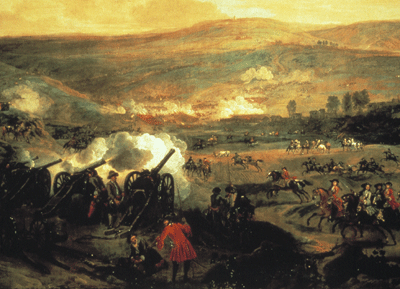Okay, just to start off, I found two funny things in the course of finding a little background info. One was on a site where you could download The Wake, and it cautioned, "Do not spell-correct this document". (But wouldn't it be fun to try?) On the same site's sponsoring ads it promises, "Get Joyce's email address." I couldn't resist clicking through, but it was disappointing...
So we've now arrived in the sixth chapter of the first book. Whether reaching these milestones actually means anything, I don't know, but we always do feel a bit elated at having come so far. Also, we've apparently left the close discussion of ALP's letter and have now entered the realm of riddles. This chapter consists of twelve riddles, which are asked and answered. Supposedly, they give us more details of the life of both the major and minor characters of the novel.
We got into a brief discussion about riddles. I don't think any of us said that we particularly liked them, but we did remember how they show up in different classic tales as important--the Sphinx in Oedipus has a famous one, and L. recalled that Wotan has another in Wagner. The appeal of riddles, however, remains mysterious, at least to me. Kids' riddles are funny, at least the first time, but the kinds of riddles that turn up in literature tend to be very solemn and fateful, and often, as a modern reader or listener, we tend to quibble with the answers. Nevertheless, we all felt that that there must be some nugget at the heart of them, and Joseph Campbell in the Skeleton Key reminded us that the ancient gods often fought with riddles, not weapons.
We may have deprived ourselves of some suspense, though. We accidently looked ahead and learned the answer to the first one! And I'm going to tell it here too, but not till the end of this post. Still, with the Wake it may be as well to have the answer before starting out-- after all, there's not much certainty that you are going to come to it on your own.
Having the
Wake right here on another tab of the computer is a different experience of reading it. Not better or worse, just different. It makes me realize that we read it as if we are trying to get through something, rather than as if each fragment will disclose some meaning. It's hard to say that we read too fast by any other standards, but it may be true. And I don't mean because then we could succeed at picking apart every meaning, but because on some level it is actually poetry, such as this phrase that stands out to me now: "towers, an eddistoon amid the lampless, casting swannbeams on the deep".
But I should perhaps get to a few things we did pick out together. A phrase that caught our attention was, "like a heptagon crystal emprisoms trues and fauss for us", which we feel has something to do the way a prism captures true and false, but also 'phosphorus'. Oh, and just before that, a real 'riddly' part: "is too funny for a fish and has too much outside for an insect". We puzzled over the the acronym F.E.R.T., which our mysterious subject wrote on his buckler, and which the above photo demontrates. It turns out to be the motto of the House of Savoy, although it would seem to be a funny kind of motto, as no is absolutely sure of it's significance, although some theories are posted
here. Personally, I like the parodic one, supposedly based on the Savoys' tendency to raid anyone showing the slightest vulnerability:
Frappez, Entrez, Rompez Tout (French: "Strike, Enter, Break Everything") With it's vague suggestiveness of Here Come Everyone, I'm guessing Joyce might have liked it too.
We also liked this,
business, reading news-
paper, smoking cigar, arranging tumblers on table, eating meals,
pleasure, etcetera, etcetera, pleasure, eating meals, arranging tum-
blers on table, smoking cigar, reading newspaper, business;
minerals, wash and brush up, local views, juju toffee, comic and
birthdays cards;
because it reminded us of Bloom doing his daily rounds in
Ulysses.
And I personally liked "can dance the O'Bruin's polerpasse at Noolahn to his own orchistruss accompaniment" because of our previous introduction to the plays on both Bruno of Nola, or Giordano Bruno, and Brown and and Nolan, the booksellers who first published him in Dublin.
Wel, that's plenty long for this post, and I'm sorry for what I've already forgotten.
It was also fun reading about these particular pages
here. He really packs it in, does our Jim Joyce. But by now, that's hardly surprising.
Oh, right. The answer to the first riddle is Finn McCool. Make of that what you will.






















